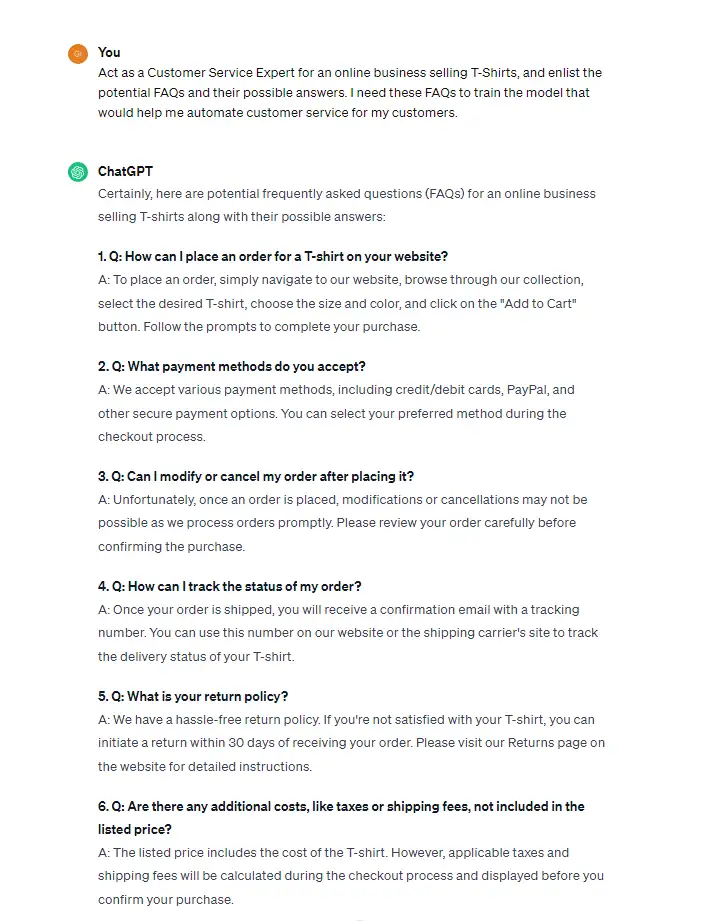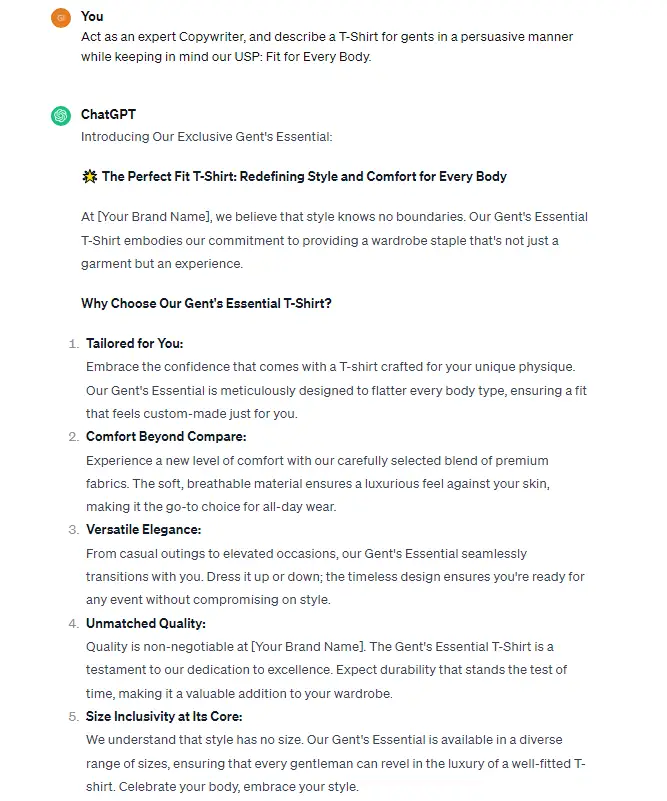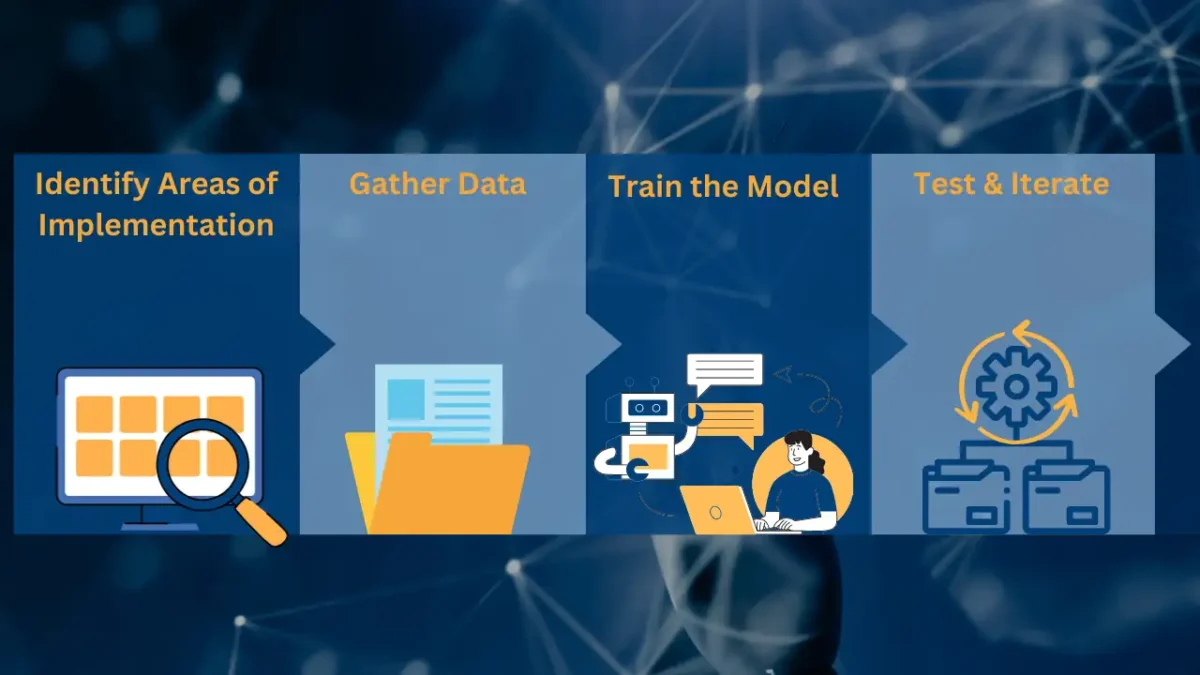How to Use ChatGPT for Business or SMBs: Ultimate Guide
In the world of artificial intelligence, ChatGPT is a revolutionary advancement. Built on the Generalized Pre-training Transformer (GPT) model, this language understanding AI has many potential uses. So, there is a dire need to understand the uses of ChatGPT for business.
This guide seeks to shed light on detailed instructions, best practices, and potential use cases of ChatGPT for business. With potential applications in various sectors, understanding and effectively utilizing ChatGPT 4 Online in business operations can provide strategic benefits.
This guide is designed for small to medium-sized businesses looking to incorporate innovative, cost-effective solutions. It will particularly benefit those exploring AI automation and innovation for their business.
Business leaders, SME owner-managers, strategists, digital marketers, sales personnel, customer service managers, and content creators seeking to use AI in their operations should find this guide particularly useful.
Benefits of ChatGPT for Business

ChatGPT enhances operational efficiency and innovation for business in the following ways:
Each of these benefits or use-cases of ChatGPT for businesses highlights how it can be integrated within diverse business functions, promoting efficiency and profoundly impacting your business’s growth trajectory. Let’s delve more into the specifics.
ChatGPT for Customer Service
The integration of ChatGPT free into your business website or mobile app could bring about a significant revolution in customer service operations. Consider the scenario – instead of customers waiting for service agents to resolve their queries, an autoresponder powered by ChatGPT would provide immediate, accurate responses to FAQs or troubleshoot basic issues on the spot.
Businesses facing high demand during peak hours, seasonal rushes, or managing large user bases get considerable benefits by using AI-driven chat assistants. It ensures consistent response quality irrespective of query volume and allows human representatives more time to solve intricate client requirements.
Here are 5 ways you can use ChatGPT to improve your customer support operations:
1. FAQ Responses
ChatGPT significantly enhances the efficiency of customer support by automating responses to commonly asked questions. By training the model with a set of FAQs, businesses can ensure consistent and accurate answers to customer queries.
If you’re at the initial stage of your online business and don’t know what can be the possible FAQs you should train your model with. Don’t worry! ChatGPT is here for that too.

This automation helps maintain a standardized and reliable approach to addressing routine inquiries, contributing to an improved customer experience. This use case of ChatGPT for business is particularly useful for small businesses as it helps them to save the cost of a full-fledged customer service team.
2. Ticket Triage
ChatGPT can be employed to triage and categorize incoming support tickets based on predefined criteria. The tool can quickly analyze the content of each ticket and assign appropriate tags or labels, streamlining the customer service process.
This automated categorization enables businesses to prioritize urgent issues, allocate resources efficiently, and implement faster response times for critical matters. By using ChatGPT in ticket triage, small businesses can enhance the overall responsiveness of their customer support team, leading to increased customer
3. Sentiment Analysis
You can integrate sentiment analysis capabilities into ChatGPT for a deeper understanding of customer emotions expressed in support tickets. By gauging sentiment, businesses can prioritize and address issues with a higher emotional impact promptly.
Positive sentiments can be acknowledged, fostering a positive customer experience, while negative sentiments can trigger immediate attention, allowing businesses to proactively resolve issues before they escalate.
4. Escalation Guidelines
You can also train ChatGPT to follow predefined escalation guidelines when categorizing tickets. This ensures that critical issues are escalated to the appropriate level or department within the organization.
By automating the escalation process, businesses can swiftly address urgent matters, preventing delays in resolution and demonstrating a commitment to customer satisfaction.
5. Continuous Improvement Feedback Loop
You should establish a feedback loop where the outcomes of ChatGPT’s ticket triage are regularly reviewed by human agents. This process allows for continuous refinement of the model, improving its accuracy and adaptability to evolving customer queries.
ChatGPT for Marketing & Sales
At the heart of any successful sales and marketing strategy is impactful communication – a factor even more critical for SMBs or SMEs. ChatGPT enhances creativity by producing an array of advertising copy or product description ideas, thereby offering creative insights otherwise overlooked.
For example, running sales copy prompts like “Describe [the product] in a persuasive manner” can generate various compelling narratives that capture your unique selling propositions aptly.

Utilizing ChatGPT for business promises renewed creativity in your business promotion tactics. Imagine your new collection launch; traditionally, you’d ponder over how best to describe each item. With ChatGPT, instead, you can generate multiple versions of captivating descriptions for the same product.
Additionally, AI enables personalized conversations, so when sending out promotional emails or crafting targeted ads, the language can be tailored to individual customers’ preferences, significantly boosting conversion rates.
Here are 6 ways how you can incorporate ChatGPT to increase the productivity of your marketing and sales-related tasks:
1. Social Media Posts
ChatGPT plays a crucial role in crafting engaging and on-brand social media posts, contributing to a consistent and compelling online presence. By understanding the tone, style, and key messages of a brand, the model can generate creative and attention-grabbing content for various social media platforms.
It allows businesses to maintain an active online presence without the constant need for manual content creation, freeing up marketing teams to focus on strategy and analysis.
You can also check ChatGPT Prompts for Copywriting if you want to give ChatGPT your customized instructions that are best suited to your specific needs.
2. Product Naming
By considering factors such as target audience, brand identity, and market positioning, ChatGPT offers creative and unique product names that align with the business’s objectives. This collaborative approach of using ChatGPT for small businesses facilitates the development of a brand image that resonates with consumers.
3. Email Responses
ChatGPT’s ability to generate concise and professional email responses can significantly streamline routine communication in the sales and marketing domain of your business. By providing initial drafts for responses, ChatGPT enables sales teams to handle inquiries and correspondence more efficiently.
This ensures that communication remains prompt and professional, contributing to positive customer experiences. Additionally, the tool can be trained to adapt to the company’s communication style, maintaining brand consistency across all email interactions.
4. Drafting Outreach
By generating personalized and well-crafted messages, ChatGPT assists sales teams in establishing meaningful connections. Businesses can use it to tailor outreach messages to specific audiences, increasing the likelihood of positive responses.
This use case of ChatGPT for business allows your sales professionals to focus on relationship-building and strategic aspects of client engagement.
5. Multilingual Content
In a globalized market, ChatGPT assists in creating multilingual marketing content. It generates translations or adapts content for different regions, ensuring that marketing messages are culturally sensitive and resonate with diverse audiences.
This capability of ChatGPT for business is particularly valuable for businesses operating in international markets, helping them maintain a global and inclusive approach to marketing.
6. A/B Testing Ideas
You can utilize ChatGPT to brainstorm ideas for A/B testing in marketing campaigns. By suggesting variations in messaging, imagery, or calls-to-action, ChatGPT can contribute to the optimization of marketing strategies.
This data-driven approach to using ChatGPT for small businesses ensures that marketing efforts are continuously refined based on insights generated by the tool.
ChatGPT for Business Content Creation
Creating engaging content regularly is time-consuming and often requires expertise beyond SMEs’ immediate capabilities. ChatGPT conveniently fills these gaps by generating text for blogs, social media posts, newsletters, announcement emails – basically any form of written content.
Provide ChatGPT free with relevant keywords or topics to generate various content options that resonate well with your audience; it generates various content outline options you could work on, delivering fresh perspectives your team might have overlooked and leading to increased productivity.
Utilizing this use case of ChatGPT for small businesses allows them to maintain their online presence without extensive investments in a full-fledged content team.
Following are 7 ways you can use ChatGPT for business content generation:
1. Blog Post Ideas
By understanding the target audience and industry trends, ChatGPT assists content creators in overcoming the challenge of ideation. It offers diverse perspectives, helping businesses maintain a fresh and engaging blog that resonates with their readership.
2. Generating SEO-Friendly Keywords
ChatGPT contributes to SEO strategies by generating relevant and SEO-friendly keywords for a given topic. By incorporating these keywords into content, businesses can improve their search engine rankings, driving organic traffic to their websites.
While using ChatGPT for business as an SEO-friendly keywords generator, keep in mind that it can’t access the latest data on the internet; GPT-3.5 turbo and GPT-4 turbo can access data up to Sep 2021 and April 2023 respectively.
3. Creating Outlines of Articles
ChatGPT aids in the content creation process by generating outlines for articles. It can organize key points, structure, and flow, providing a roadmap for content creators to follow. You can use our AI Article Writer, powered by ChatGPT API, to write well-researched articles accompanied by relevant references or citations.
4. Knowledge Base Articles
ChatGPT supports knowledge management within a business by generating informative articles for an internal knowledge base. These articles can cover a range of topics, from standard operating procedures to troubleshooting guides.
5. Employee Training Guides
When developing training materials for onboarding or skill development, ChatGPT assists in generating initial drafts. By covering basic concepts and procedures, ChatGPT facilitates the creation of comprehensive training guides.
6. Legal Contract Summaries
ChatGPT assists legal teams by generating concise summaries of complex legal contracts. Highlighting key terms and conditions, it simplifies the understanding of legal documents, enabling faster and more efficient contract review processes.
This use case of ChatGPT for small businesses proves to be cost-saving as it will reduce your investment in a full-fledged legal team.
7. Policy Drafting
When creating company policies, ChatGPT can assist in generating initial drafts that adhere to legal compliance standards. It ensures that the policies are clear, concise, and aligned with the organization’s values.
ChatGPT for Business Data Analysis
Another benefit of ChatGPT for small businesses is that it can analyze your business data quite promptly. Data analysis forms the backbone of strategic planning of any business; deciphering raw data into tangible insights is key to informed decision-making.
Today’s businesses generate loads of data regularly – be it from sales records, web analytics, customer interactions or market research surveys. However, data is only as good as the insights it provides. Often, businesses struggle with complex data interpretation.
Let’s consider raw data from recent online sales. Input this dataset into a fine-tuned ChatGPT model and stand back as it parses the data and spews out understandable narratives – trends, anomalies, high-selling products, and customer buying patterns.
This human-like data interpretation provided by ChatGPT not only saves time but also empowers businesses to make acute, strategic decisions proficiently.
Here are 5 ways, I’ve described below, you can use ChatGPT for performing analytical tasks of your business:
1. Data Summarization
Efficient summarization of large datasets or reports is one of the uses of ChatGPT for business. By processing extensive volumes of information, it extracts key insights and presents them in a concise and understandable format.
This capability is invaluable for decision-makers who need a quick overview of complex data sets, enabling them to focus on relevant information without getting overwhelmed by the details.
2. Customer Segmentation
Utilizing ChatGPT for data analysis enables businesses to conduct sophisticated customer segmentation. By identifying distinct customer groups based on purchasing behavior, demographics, or other relevant factors, businesses can tailor their marketing strategies, product offerings, and customer service approaches.
3. Expense Summaries
ChatGPT aids in summarizing and categorizing expenses from financial reports, streamlining the budget review process. By automating the extraction of key financial information, businesses quickly assess spending patterns, identify cost-saving opportunities, and make informed financial decisions.
4. SWOT Analysis
SWOT analyses are integral to strategic planning, and ChatGPT contributes by collaborating on this process. By examining internal strengths and weaknesses, as well as external opportunities and threats, ChatGPT provides a comprehensive overview.
5. Consumer Insights
ChatGPT analyzes customer feedback and reviews, extracting valuable insights for product or service improvements. By identifying recurring themes, sentiment patterns, and specific pain points, businesses can understand customer preferences and address issues proactively.
You can also check various task-specific ChatGPT Prompts for Business to catalyze your business tasks including business finances, cost evaluation, SWOT analysis, business audit, competitors research, and many more.
Implementing ChatGPT for Business

To successfully implement ChatGPT into your operations, follow these steps:
Successful integration of an AI model like ChatGPT for business setup requires precise planning and implementation. Here’s a more detailed look into the steps involved:
Identify Areas of Implementation
Identifying potential business areas that could benefit from AI-driven automation is the first crucial step towards successful ChatGPT integration. Understand your operational bottlenecks, routine tasks that consume a significant amount of time or areas that need enhanced creativity.
Each business has unique needs – customer service, content creation, data interpretation, sales and marketing are a few sectors where AI like ChatGPT can bring substantial improvements.
Gather Data
Once you’ve identified the target area, the next step involves gathering a comprehensive and high-quality dataset suitable for your specific needs. For instance, if you aim to enhance your customer service with ChatGPT, gather typical customer queries and responses from your past records. This data serves as a benchmark for the AI to learn and understand your unique requirements.
Train the Model
The essence of any AI model performance lies in its training process. OpenAI provides a detailed fine-tuning guide to optimize ChatGPT to suit an organization’s requirements. Feed your previously collected data into the model and follow OpenAI’s guidelines while keeping your specific goals in mind – whether it’s generating sales copy ideas or responding to customer queries.
If you’re not a programmer and don’t have basic knowledge of coding languages, you should use AI Plugins available in the market. AI Plugins will make using and training your chatbots a piece of cake for you.
Test & Iterate
Implementing an AI system isn’t a ‘set it and forget it’ solution but rather an iterative process of continuous fine-tuning for the best outcomes. Deploying pilot runs before complete integration helps identify possible gaps in understanding or effectiveness.
Examine the quality of solutions provided by ChatGPT for business – are the auto responses apt? Are promotional copies engaging enough? Is the content generation up to standard? Regular evaluations and subsequent iterations ensure that the AI tool aligns completely with your business paradigm.
These steps, when carried out diligently, should put businesses on the right track towards an effective and seamless integration of ChatGPT into their operations.
Tips for Using ChatGPT for Small Business
Exploring the full potential of ChatGPT for your small business requires strategic implementation. Here are 10 essential tips to harness its capabilities effectively:
1. Customization
Tailor prompts and instructions to better align with your business context. Experiment with different phrasing to fine-tune the responses and make them more relevant to your specific needs.
2. Fact-Check
Prioritize accuracy by fact-checking the information provided by ChatGPT to ensure reliability in your business processes.
3. Feedback Loop Implementation
Establish a feedback loop with your team to continuously improve ChatGPT’s performance. Regularly gather insights on its output, identify areas for enhancement, and adjust your usage strategy accordingly.
4. Article Creation Caution
Avoid relying on ChatGPT to create entire articles. Instead, use it as a supplementary tool for generating ideas and outlines that your team can further develop.
5. Code Validation
If using ChatGPT for code generation, meticulously check any code produced. While the tool can be a valuable resource, it’s crucial to verify the accuracy and security of the code before implementation.
6. Task Prioritization
Clearly define the tasks for which you employ ChatGPT. Identify routine, time-consuming tasks that the tool can automate, allowing your team to focus on high-priority and value-added activities.
7. Collaborative Approach
Encourage collaboration by using ChatGPT as a collaborative tool within your team. Facilitate discussions around the tool’s output to collectively refine and expand upon generated ideas.
8. Security Measures
Exercise caution and never enter sensitive or confidential information into ChatGPT. Prioritize the privacy and security of your business data.
9. Legal and Ethical Considerations
Stay informed about legal and ethical considerations related to AI. Ensure that the use of ChatGPT aligns with privacy regulations, intellectual property rights, and ethical guidelines to safeguard your business reputation.
10. Continuous Learning
Invest time in understanding the evolving capabilities of ChatGPT. Regularly explore updates and new features to use the latest advancements in AI technology for the benefit of your small business.
To gain expertise in getting exactly the same responses from ChatGPT that fulfill the requirements of your tasks, I have published a beginner-friendly guide on Prompt Engineering for you.
Final Thoughts
Optimizing workflows by AI implementation offers vast potential rewards for small and medium-sized businesses ready to digitize their operations – using ChatGPT for business ensures efficiency, boosting innovation and maintaining competitiveness online even with limited resources at hand.
Strengthening your business requires a thorough understanding of ChatGPT’s possibilities and challenges – an intricate balance between innovative capacity and conscious ethical responsibility in deploying AI-powered solutions always wins.

Albert Haley
Albert Haley, the enthusiastic author and visionary behind ChatGPT4Online, is deeply fueled by his love for everything related to artificial intelligence (AI). Possessing a unique talent for simplifying intricate AI concepts, he is devoted to helping readers of varying expertise levels, whether they are newcomers or seasoned professionals, in navigating the fascinating realm of AI. Albert ensures that readers consistently have access to the latest and most pertinent AI updates, tools, and valuable insights. His commitment to delivering exceptional quality, precise information, and crystal-clear explanations sets his blogs apart, establishing them as a dependable and go-to resource for anyone keen on harnessing the potential of AI. Author Bio
